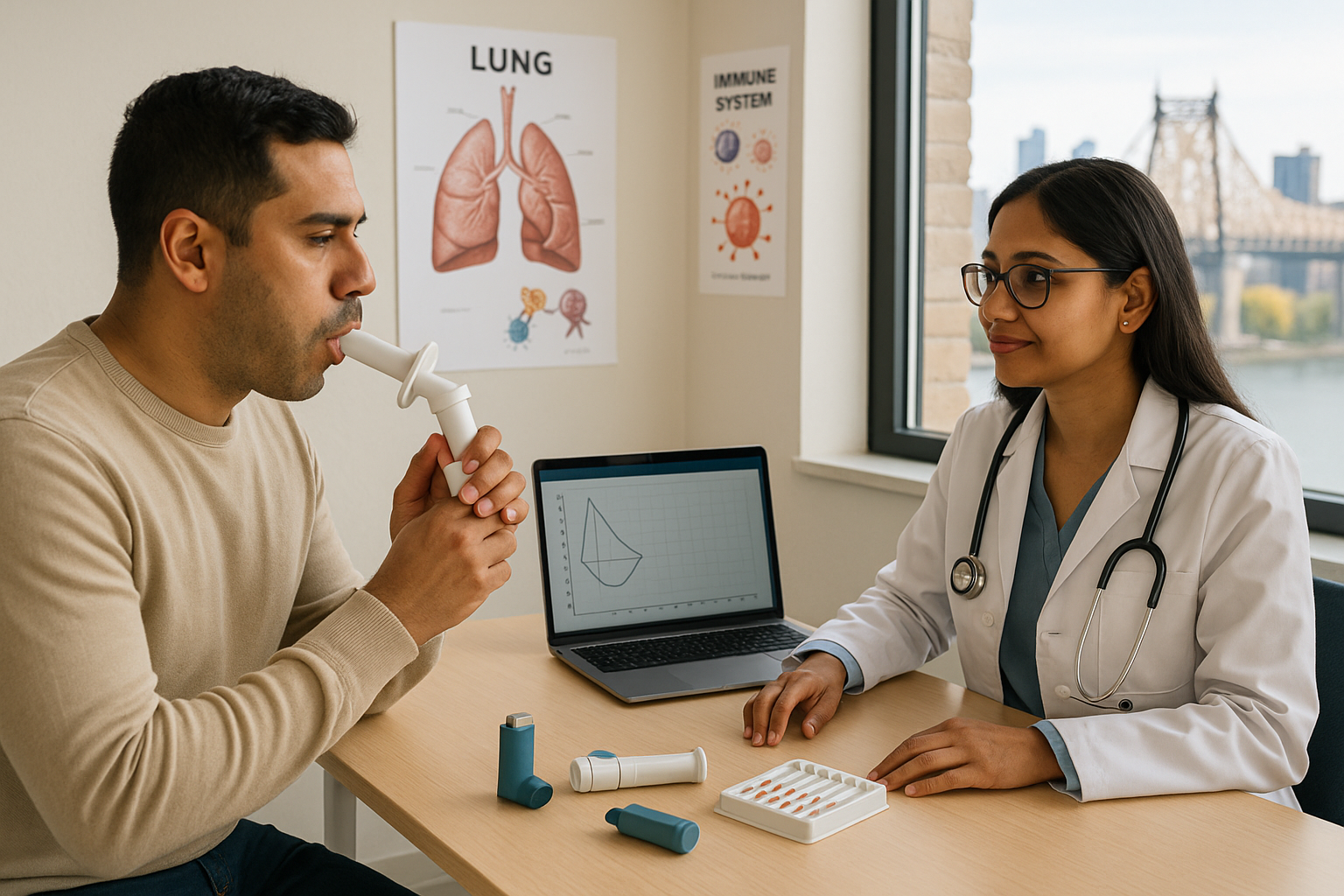What Does Allergy and Immunology Care Involve?
Allergy and immunology deal with the treatment and management of disorders of the immune system. These disorders disrupt the body’s capacity to defend itself against harmful microorganisms that cause diseases. Doctors in this field of medicine are known as allergists or immunologists.
They treat a wide range of disorders, including:
- Skin-related allergic conditions, such as atopic and contact dermatitis
- Asthma
- Allergic conjunctivitis
- Primary immunodeficiency diseases
- Allergic reactions to food, drugs, and insect stings
- Upper respiratory infections
Outbreaks from any of these conditions require immediate attention from an immunologist at the New York City-based Medex Diagnostic and Treatment Center. Your immunologist reviews your case, based on current symptoms, medications you’re taking, family medical history, and possible toxin exposure. At the core of allergy and immunology is the prevention of allergic reactions and the strengthening of your immune system. After diagnosis, your doctor develops the best prevention plan for your specific condition.

What Does the Immune System Do?
Your immune system carries out the critical function of defending your body against harmful microorganisms. This is the system that produces lymphocytes, the white blood cells that fight antigens. When you suffer from an immunodeficiency disorder, your body’s ability to defend itself is compromised.
Your immune system is comprised of:
- The spleen
- Tonsils
- Bone marrow
- Lymph nodes
- Lymphatic vessels
- Peyer’s patches in the small intestine
Allergies, asthma and other respiratory diseases are often linked to the immune system and inflammation. Allergies occur when an active immune system releases antibodies to attack an allergen even if it’s not harmful. When you or a family member has asthma, the immune system produces too many immune factors to respond to stimuli, which leads to asthmatic attacks.
Learn more about:
How Can I Prevent Allergic Reactions?
Reactions can occur after touching, inhaling, or eating the substance that causes the reaction. Once your allergy doctor identifies the substance that leads to your reactions with allergy skin testing, you’re provided with steps to prevent attacks.
Common allergens that cause an overreaction from the immune system include:
- Bee venom from a sting
- Certain medications
- Foods such as nuts, eggs, fish, soy, wheat, and shellfish
- Pet dander
- Latex
- Some metals
- Dust and pollen
- Mold
- Insect bites
Your body’s immune system registers the allergens and reacts similarly every time it detects exposure. Allergic reactions are not only uncomfortable, but they can also become fatal. At the immunology center in Queens, NY, your specialist uses a multi-disciplinary approach to treat and prevent allergies.
Treatment options may include:
- Antihistamines
- Decongestants
- Epinephrine
- Nebulizer treatments
- Therapeutic injections
- Diagnostic skin testing
What Is Anaphylactic Shock?
Anaphylactic shock, also called anaphylaxis, is the most severe form of an allergic reaction to allergens. This is a life-threatening condition that requires the immediate attention of a specialist in immunology for adults and allergy testing and treatment for children. It’s characterized by a sudden drop in blood pressure and can result in unconsciousness or death if not treated immediately.
Common symptoms of anaphylactic shock include:
- Difficulty breathing and shortness of breath
- A rise in body temperature
- Abnormal heart rate or palpitations
- Dizziness
- Swelling of the tongue and throat or tightness in the throat
- Headache
- Loss of consciousness
- Anxiety
Lack of emergency treatment can be fatal. If you have any reactions to foods, drugs or other substances, consult your Queens asthma doctor to determine the severity of the allergy. After a diagnosis, your allergy doctor can prescribe a nebulizer to avert such emergencies.
What Other Preventive Steps Can I Take?
Preventive care is integral in treating and managing conditions of the immune system. After diagnosis, your immunologist at the Medex Diagnostic and Treatment Center recommends ways to strengthen your immune system and asthma or allergy management plan.
Preventive care may involve:
- Eating a diet high in fruits and vegetables, particularly citrus fruit, red bell pepper, broccoli, ginger, and garlic
- Exercising regularly
- Stopping smoking
- Getting adequate sleep
- Maintaining a healthy weight
- Understanding your allergens and avoiding them
- Using medications as prescribed
- Carrying your epinephrine injector with you all the time if you or your child is in danger of anaphylaxis
- Using a medical alert bracelet if you have a severe allergic reaction
If you need a referral to treat an underlying condition, you can receive treatment at the Queens location in the same location from specialists in:
- Cardiology
- Dermatology
- ENT services
- Gastroenterology
- Physical medicine and rehabilitation
- Psychology
Severe allergic reactions or asthma attacks can become life-threatening. Contact the Medex clinic today to schedule an appointment with asthma and allergy doctors or a pediatric immunologist to get an early diagnosis.
